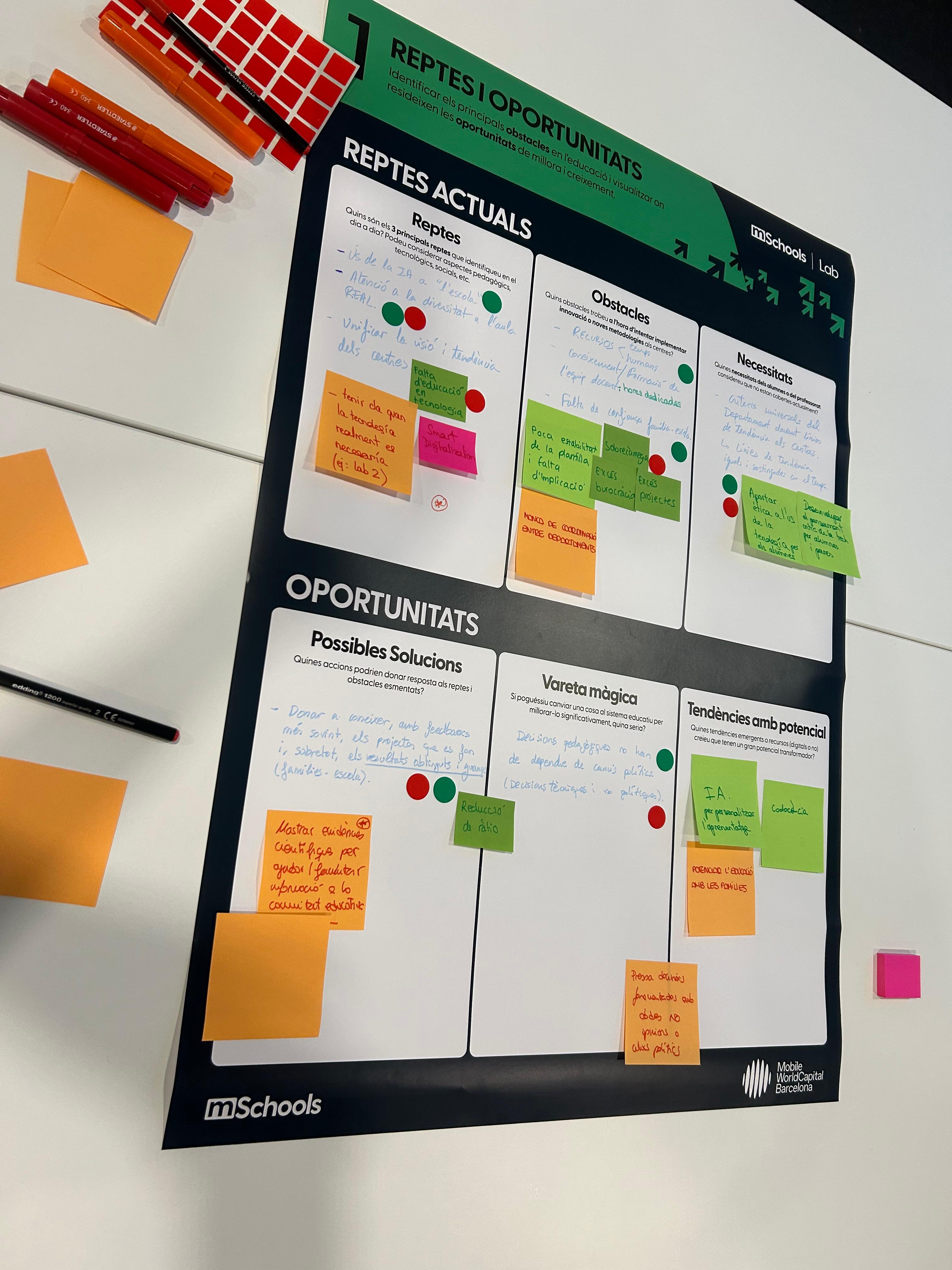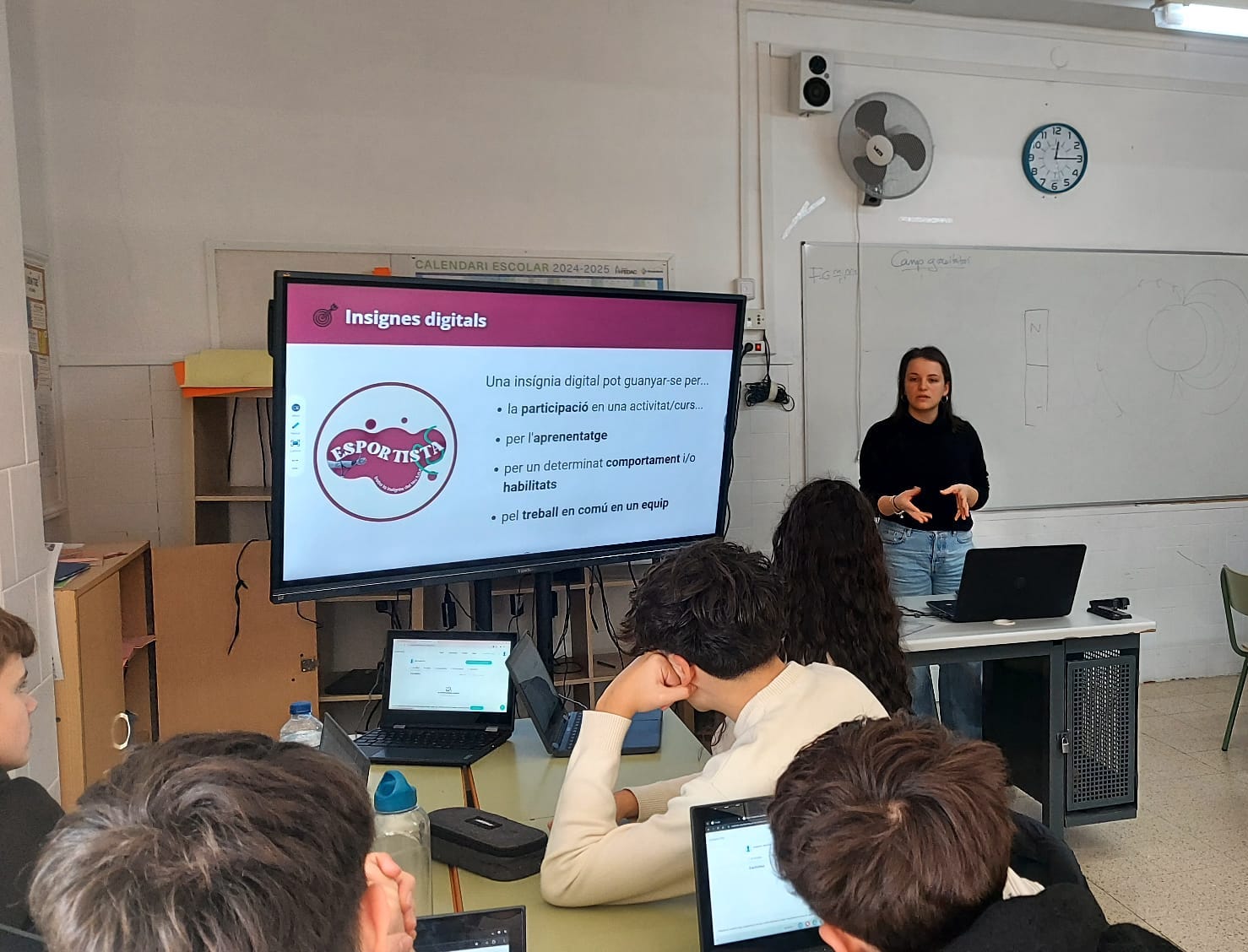Awero team
Badges for your future: how Open Badges are inspiring students in Catalonia
19 ліст, 05:54
How do we motivate students to think about their future in a way that feels real and empowering? That was the question at the heart of Get the Badge for Your Future!, a year-long pilot led by Nexes Interculturals in partnership with mSchools, using the Cities of Learning platform to help students explore their aspirations and earn recognition for what they learn along the way.
Dalila Fernandes, one member of the Nexes team responsible for the project, explained, “Since the beginning, we felt that we needed an adaptation. If we are talking about motivation, we need to understand what students are interested in, what they’re afraid of, what inspires them.”
It wasn’t about a top-down digital fix. It was about listening deeply to students, then using the right tools to support them in imagining who they could become. And maybe, along the way, helping teachers see them differently too.
Before any digital solution was built, the Nexes team spent time listening. Through surveys, interviews, and focus groups, they engaged directly with over 70 students and reached 229 more through an online questionnaire.
Students shared their hopes for the future - from becoming artists or astronauts to making a difference in their communities - and their worries, including climate change, AI, and inequality. These insights formed the basis for six archetypes that reflected different ways of living and working: Esportista, Científic, Visionari Creatiu, Explorador/Yogui, Professor/Activista, and Broker.
“We didn’t think of them as professions,” Dalila says. “Each one is more like a mindset, or a path, that connects to passions or values, not a fixed career.”
These archetypes were then transformed into learning playlists: digital pathways of interactive activities that invite students to reflect, create, and connect with real-world ideas.
Learning that resonates
Once the archetypes were defined, they became the basis for tailored digital learning journeys, known as playlists. Each playlist included four themed activities, designed to help learners develop 21st-century skills like creativity, empathy and collaboration, while reflecting on their personal goals.
“We went directly to the schools and did the activities with the students,” said Dalila. “They were so engaged, because they don’t usually have time to talk about these things - their fears, their future, their dreams.”
In some schools, teachers chose to let students pick their own archetype. In others, all students completed the same playlist. Both approaches had value, Dalila reflects: “Some teachers said, ‘They all have to try it, even if they don’t feel connected to it - maybe they’ll discover something new about themselves.’ Others preferred to let them choose, based on what inspired them.”
Over 200 students explored the digital platform during the pilot, with 161 earning Open Badges, meaning nearly 79% of participants received recognition for their learning.

Making learning visible
The pilot also showed the power of Open Badges as symbols of progress and pride, motivating students to progress through their learning.
“In the first tryouts, when I said, ‘now you get your first badge,’ the students were really enthusiastic,” explains Dalila. “They saw it as something fun and meaningful - a sign that they had done something real.”
Each badge corresponded to a specific activity, some automatically awarded, others reviewed by teachers. In total, 449 badges were issued, some on the general platform, others on school-specific platforms created to support teachers in managing the process.
Interestingly, while teachers appreciated the platform’s features, some didn’t initially see badges as the main benefit. “They told us, ‘The most valuable thing is the activities, because they help students think,’” said Dalila. But for students, badges provided visible proof of their progress, and even sparked friendly competition.
Real impact and lessons learned
While not all schools were able to implement the full pilot, those that did reported positive change. Some are now adapting their own classes to include elements of the platform. “For us, getting this kind of feedback is already a success,” Dalila says. “It means the content we created isn’t just sitting somewhere. It’s being used, it’s alive.”
Teachers also highlighted the value of the project in helping students reflect on their future and get to know themselves better. In a sign of its success, 87.5% of teachers said the pilot helped them understand their students’ interests, motivations and skills more deeply, and 74% of students said they’d recommend the project to others.
Still, Dalila acknowledged the challenges: “Maybe it was too much for some teachers to manage everything - the platform, the content, the sessions. We learned that the first session should be done with someone who knows the platform well. That makes it easier for teachers to follow.”

Starting small can yield real world results
So, what advice does Dalila have for organisations thinking about using Cities of Learning and Open Badges?
“Start simple,” she said. “There are already good playlists about Open Badges. Do those first. Then try something with your own team - a small internal activity where you create a badge and issue it. Play with the platform. And then… you can get more ambitious.”
She laughed, adding, “You don’t have to go straight into a big school pilot. Just begin. Little by little.”
In the end, Get the Badge for Your Future! wasn’t just a pilot about digital learning - it was a human story. About listening to young people, making space for their voices, and empowering them to make informed choices about their futures.
As Dalila put it, “It’s a tool that allows students to reflect on themselves and feel recognised. And when that happens, real learning begins.”

Funded by the European Union. Views and opinions expressed are however those of the author(s) only and do not necessarily reflect those of the European Union or the European Education and Culture Executive Agency (EACEA). Neither the European Union nor EACEA can be held responsible for them.
Share:
Awero not-for-profit organisation manages this platform and develops it together with leading educational organisations. The European Union's programme Erasmus+ granted co-funding for building the first version of this platform. Contact support@awero.org.
Platform
Change to another language:
